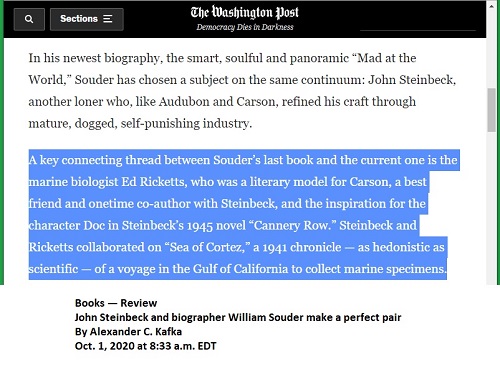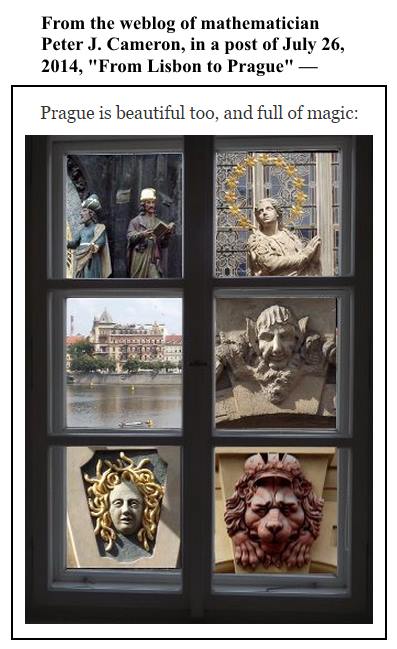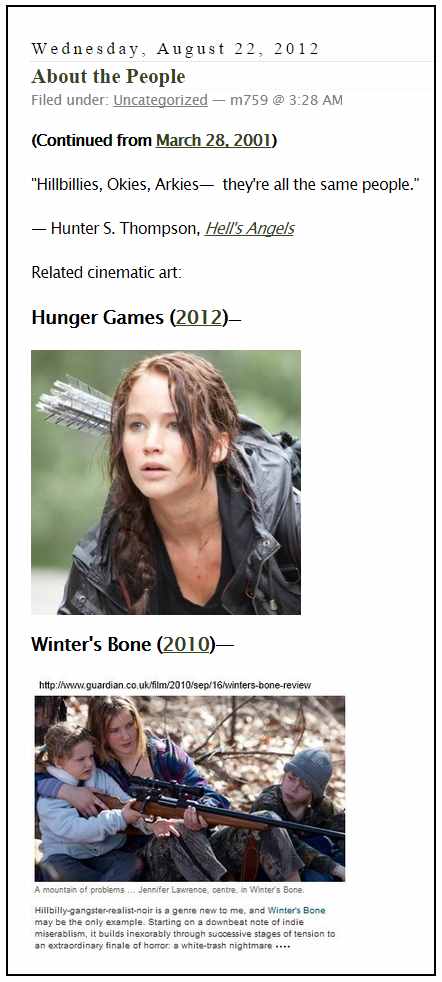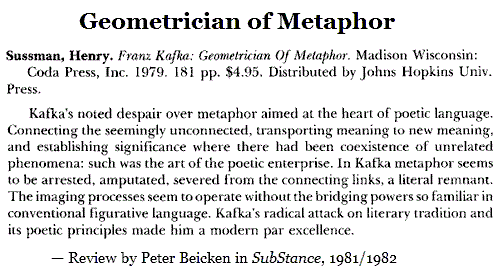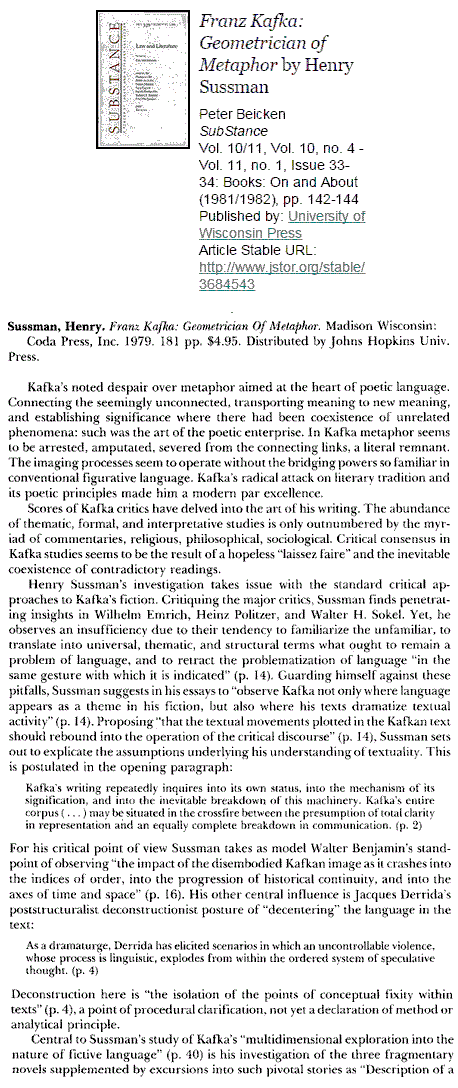The project of modernity in Wood’s eyes is largely in revealing the contour and shape, the specific ‘feel’ of that essential mystery. He even borrows a concept from the medieval philosopher Duns Scotus, haecceitas or ‘thisness,’ to explain what he means: ‘By thisness, I mean any detail that draws abstraction toward itself and seems to kill that abstraction with a puff of palpability, any detail that centers our attention with its concretion.’ (my emphasis)
Wood is clearly taking his cue here from the new trend in literary criticism of referring to realism by its etymological meaning, thingism. Where thingism is meant to capture the materialism of late nineteenth and early 20th century Realist literature, thisness, it seems, is meant to capture the basic immaterialism of Modern realist literature. In this, it succeeds. Realism is no longer grounded in the thingism, or material aspect, of reality as it was during the Victorian era. In contemporary literature, it is a “puff of palpability” that hints at reality’s contours but does not disturb our essential understanding of existence as an impalpable mystery. So now we have this term that seems to encompass the Modern approach to reality, but is it useful as an accurate conception of reality (i.e. truth, human existence, and the like), and how are we to judge its accuracy?
I think that, as far as literature is concerned, the test of the term’s accuracy lies in the interpretation of the Modernist texts that Wood champions as truthful but largely abstract depictions of human experience:
‘Kafka’s ‘”Metamorphosis” and Hamsun’s “Hunger” and Beckett’s “Endgame” are not representations of likely or typical human activity but are nevertheless harrowingly truthful texts.’
For brevity’s sake, I’ll pick a passage from a different Modernist text that I think exemplifies the issues involved in the question of thingism and thisness’ reality. In James Joyce’s Ulysses, a pub discussion of art’s purpose arises in which the writer Geoffrey Russell† asserts that “Art has to reveal to us ideas, formless spiritual essences”; in his thoughts, Stephen Dedalus prepares to counter this:
of art’s purpose arises in which the writer Geoffrey Russell† asserts that “Art has to reveal to us ideas, formless spiritual essences”; in his thoughts, Stephen Dedalus prepares to counter this:
Unsheathe your dagger definitions. Horseness is the whatness of allhorse. Streams of tendency and eons they worship. God: noise in the street: very peripatetic. Space: what you damn well have to see. Through spaces smaller than red globules of man’s blood they creepy crawl after [William] Blake’s buttocks into eternity of which this vegetable world is but a shadow. Hold to the now, the here, through which all future plunges to the past.
To give my best translation of Stephen-think: The physical being of the horse (“horseness”) grounds the over-arching, abstract idea of the horse (“allhorse”) in reality (“whatness”). God—the ultimate abstraction—is elusive and rarely manifests himself as a material reality (when listening to children playing earlier in the book, Stephen asserts that God is a “shout in the street”). Space—the material world—must be observed to make sense of abstract ideas (like God). Stephen’s opponents who believe that art must depict the abstract and the essential make claims about existence that have very little basis in material reality so that they can grasp at the divine through the work of such famously fantastic artists as William Blake, whose unrealistic poetry and paintings Stephen evidently holds in little esteem here, though he’s kinder to Blake elsewhere. Finally, the present makes concrete the abstract possibilities of the future by turning them into the realities of the past.
Ulysses elucidates the distinction between abstractly based and materially based realism because, while abstract to be sure, Joyce’s writing is deeply rooted in material existence, and it is this material existence which has given it its lasting meaning and influence. The larger point that I’m trying to make here is that material reality gives meaning to the abstract. (As a corollary, the abstract helps us to make sense of material reality.) There can be no truth without meaning, and there can be no meaning without a material form of existence against which to judge abstract ideas. To argue, as Wood does, that the abstract can produce concrete truths with little reference to material reality is to ignore the mutual nature of the relationship between material reality and truth. The more carefully we observe material reality, the more truth we gain from our abstractions of its phenomena, or, to state it in the vocabulary—though not the style—of literary criticism: thisness is a diluted form of thingism, which means that thisness is productive of fewer (and lesser) truths.



